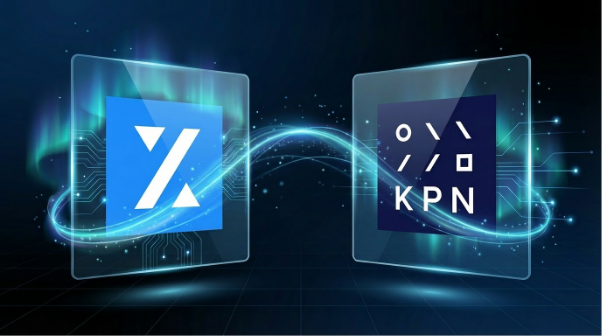Real estate has emerged as one of the key sectors where public and private sector are seeking to implement blockchain technology. The objective is to enhance the efficiency and transparency by doing away with most of the existing documentation and other manual-intensive processes and switching to a digitized blockchain-powered system.
In a report, consulting giant Deloitte hailed blockchain technology as the “next big thing” in commercial real estate (CRE). It said:
“Blockchain technology has significant potential to drive transparency, efficiency, and cost savings for CRE owners by removing many of the existing inefficiencies in key processes. CRE companies and industry participants evaluating an upgrade or overhaul of their current systems should have blockchain on their radar as its demonstrated usefulness has the ability to bring significant value to the industry.”
It is important to note that almost all of the efforts by governments across the globe to use blockchain technology in this field are in collaboration with blockchain firms.
Brazil
In April 2017, Ubitquity, a blockchain-secured platform for real estate recordkeeping, has announced its partnership with a Cartório de Registro de Imóveis [Real Estate Registry Office] in Brazil to create the first-ever pilot program for the region's official land records.
China
In November 2018, the Chinese city of Loudi, located in central Hunan province, rolled out a blockchain-based platform for recording real estate data, CoinTelegraph reported referring to a report from People’s Daily. The platform is backed by the city’s land, tax and real estate departments. It will allow citizens to avoid queues and other bureaucratic processes when submitting documents to these departments, starting November 15. However, citizens will also have the option of applying through the traditional paper-based process.
Georgia
In February 2017, blockchain technology firm Bitfury Group partnered with Government of the Republic of Georgia in a move to expand blockchain land-titling project. The blockchain project was being built in collaboration with the Republic of Georgia’s National Agency of Public Registry (NAPR). The parties also signed in a Memorandum of Understanding (MoU) in order to expand its blockchain solutions to other government departments.
Ghana
Bitland, an organization that aims to provide services to allow individuals and organizations to survey land and record deeds onto the Bitcoin Blockchain, has announced that the blockchain initiative is being piloted with 28 communities in Kumasi, Ghana, with the intention of expanding across the African continent.
Honduras
Back in 2015, Honduras collaborated with a Texas-based company Factom to develop a permanent and secure land title record system using blockchain technology, Reuters reported.
India
The Indian state government of Andhra Pradesh has partnered with Swedish blockchain startup ChromaWay to build a blockchain solution for land registry system, IBTimes UK reported. Existing land registry system is largely centralized and vulnerable to improper or unauthorised manipulation. The government of Andhra Pradesh seeks to address these challenges by using blockchain technology.
South Korea
In November 2018, Blocko, AERGO’s strategic technology partner that builds the AERGO platform, announced that it would provide a blockchain-based distributed storage platform to connect real estate registries to government network data with a blockchain ledger for the Korean Ministry of Land, Infrastructure, and Transport, ZDNet Korea reported.
Sweden
In March 2018, the Wall Street Journal reported that Sweden’s Lantmäteriet, the country’s land-ownership authority, was going to test blockchain technology for property sales. In June, Lantmäteriet announced that together with SBAB, Landshypotek Bank, Telia, ChromaWay, Evry, the Swedish Tax Agency, Swedish Real Estate Agency and Kairos Future, it completed a digital property transfer using blockchain technology.
Zambia
Medici Land Governance (MLG), a blockchain-based property rights subsidiary of e-commerce giant Overstock.com, has signed a Memorandum of Understanding (MOU) with the government of Zambia to develop a program for systematic land governance within the country.
Speaking of blockchain startups, in addition to aforementioned firms including ChromaWay, Ubitquity, Bitfury and others, one more startup that has been spearheading efforts is Propy – a California-based firm that aims to solve the problems of purchasing property across borders. The company raised $15 million in its PRO token sale last year. Some of the major initiatives of this company include
- Partnership with the government of Ukraine to allow online real estate purchases by foreign investors.
- In October 2017, the company announced the world's first real estate transaction on the distributed public blockchain network — Ethereum. TechCrunch founder Michael Arrington remotely purchased a $60,000 apartment in Kiev, settled via smart contracts and in Ethereum cryptocurrency and PRO (Propy) tokens — marking the first-ever cryptocurrency transaction in Ukraine and the first real asset transfer via blockchain
- In July 2018, it announced the execution of a comprehensive blockchain-recorded property deal in California.
- In October 2018, Propy has announced that it has completed the first blockchain-powered property sale in the European Union.
In addition, Hdac Technology AG, a blockchain-based IoT contract platform backed by Hyundai, signed a memorandum of understanding (MOU) with Dream Global Partners in August 2018. The collaboration is aimed at expanding and incorporating blockchain-based real estate enterprises around the world.
In October 2018, real estate giant Colliers International entered into a partnership with security issuance platform Smartlands Platform in a bid to jointly build a Stellar-based real estate tokenization project.
In November 2018, blockchain startup Harbor launched its institutional-grade platform for tokenizing private securities. According to the announcement, the first offering on the platform is a tokenized REIT (real estate investment trust) from Convexity Properties — a DRW Company, representing $20M USD of private equity in The Hub at Columbia, a premier off-campus, student housing high-rise serving the University of South Carolina.





























Comment 1